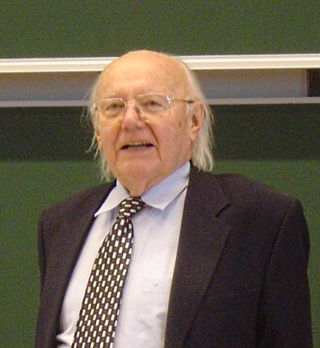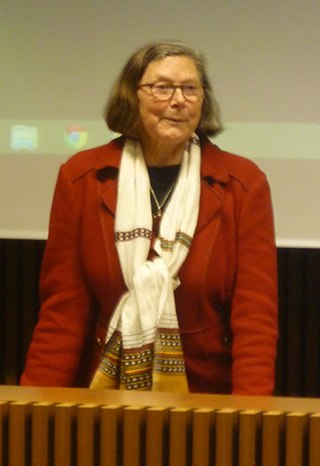
The Johannes Kepler University Linz is a public university in Austria. It is located in Linz, the capital of Upper Austria. It offers bachelor's, master's, diploma and doctoral degrees in business, engineering, law, science, social sciences and medicine.

TU Wien, also known as the Vienna University of Technology, is a public research university in Vienna, Austria.

The Anton Bruckner Private University is one of five Austrian Universities for Music, Drama and Dance, and one of four universities in Linz, the European Capital of Culture 2009. 850 students from all parts of the world study here. They are taught by 200 professors and teaching staff, who are internationally recognised artists, academics and teachers. More than 30% of the students and instructors come from abroad. The university was granted accredited private university status in 2004, as part of the Austrian Private Universities Conference,.

Heinz Zemanek was an Austrian computer pioneer who led the development, from 1954 to 1958, of one of the first complete transistorised computers on the European continent. The computer was nicknamed Mailüfterl — Viennese for "May breeze" — in reference to Whirlwind, a computer developed at MIT between 1945 and 1951.
Charles François was a Belgian administrator, editor and scientist in the fields of cybernetics, systems theory and systems science, internationally known for his main work the International Encyclopedia of Systems and Cybernetics.
The International Federation for Systems Research(IFSR) is an international federation for global and local societies in the field of systems science. This federation is a non-profit, scientific and educational agency founded in 1980, and constituted of some thirty member organizations around the globe..
The Dutch Systems Group, or Netherlands Society for Systems Research or Systeemgroep Nederland, is a society in the Netherlands for systems theory, and its applications. Systems theoretical problems the society focuses on are, for example evolution, innovation, selection, variation, translation, participation and methodological innovation.
Gu Jifa is a Chinese systems scientist, and Professor of Operations Research and Systems Engineering at the Institute of Systems Science, Academy of Mathematics and System Sciences, Chinese Academy of Sciences. He is known for hs proposal of the "oriental Wu-li Shi-li Ren-li system approach." He is an academician of the International Academy for Systems and Cybernetic Sciences.

Heinz Falk is professor emeritus for organic chemistry at Johannes Kepler University of Linz and editor of "Progress in the Chemistry of Organic Natural Compounds". His research is focused on structural analysis, synthesis, stereochemistry and photochemistry of plant and animal photosensitizing and photosensory pigments, such as hypericin.

Manfred Broy is a German computer scientist, and an emeritus professor in the Department of Informatics at the Technical University of Munich, Garching, Germany.

Wolfgang Pree is a computer scientist and professor at the University of Salzburg, Austria.

David Ing is a Canadian systems scientist, business architect, management consultant, and marketing scientist. He served as president of the International Society for the Systems Sciences (2011-2012).
The Wittgenstein Award is an Austrian science award supporting the notion that "scientists should be guaranteed the greatest possible freedom and flexibility in the performance of their research." The prize money of up to 1.5 million euro make it the most highly endowed science award of Austria, money that is tied to research activities within the five years following the award. The Wittgenstein-Preis is named after the philosopher Ludwig Wittgenstein and is conferred once per year by the Austrian Science Fund on behalf of the Austrian Ministry for Science.

International University Liaison Indonesia (IULI) is a private university established in 2014 as the strategic partner of the European University Consortium-IULI in Indonesia.
Gerhard Rudolf Reber was a German organisational theorist and Professor of Management and Organizational Behavior of the Johannes Kepler University of Linz. He is known for work on leadership studies, and particularly for his early work on multidimensional organizations.

Christiane Floyd is an Austrian computer scientist. In 1978, she accomplished becoming the very first female professor of computer science in Germany, and was a pioneer of evolutionary participatory software design—a precursor to open-source software development.
Peter Lucas was an Austrian computer scientist and university professor.
Sylvia Frühwirth-Schnatter is an Austrian statistician and professor of applied statistics and econometrics at the Vienna University of Economics and Business. She is known for her research in Bayesian analysis. In 2020 she was the President of the International Society for Bayesian Analysis.
Gerhard Larcher is an Austrian mathematician and professor of financial mathematics at the Johannes Kepler University (JKU) in Linz, Austria. He is the head of the Institute of Financial Mathematics.










